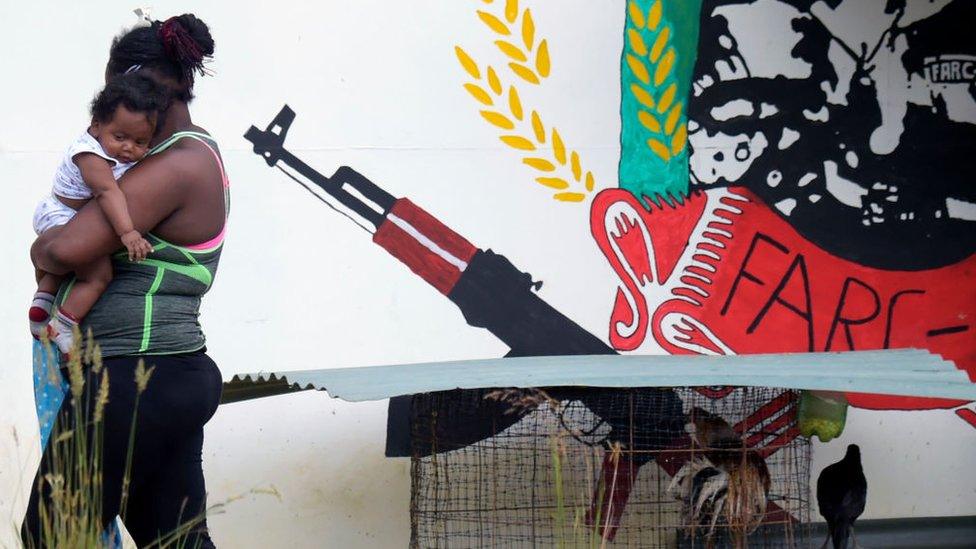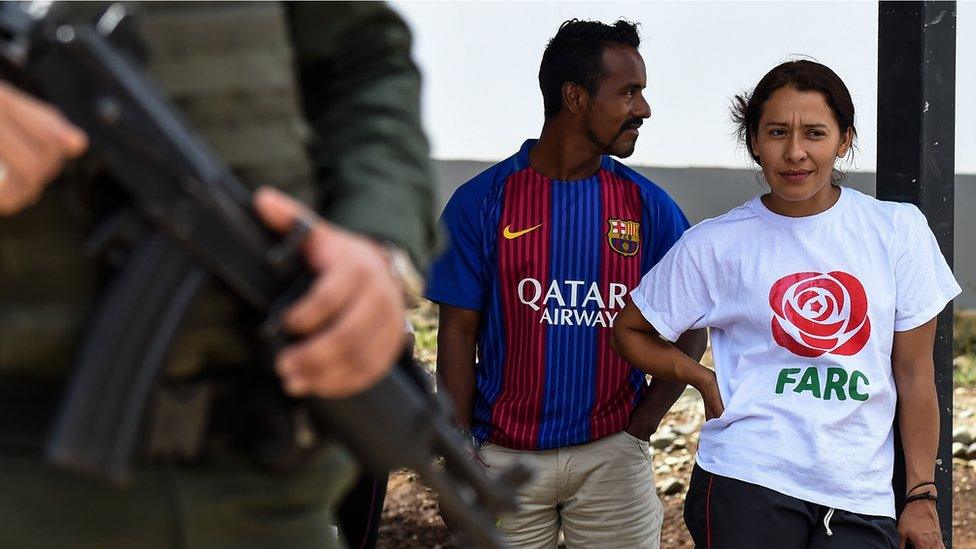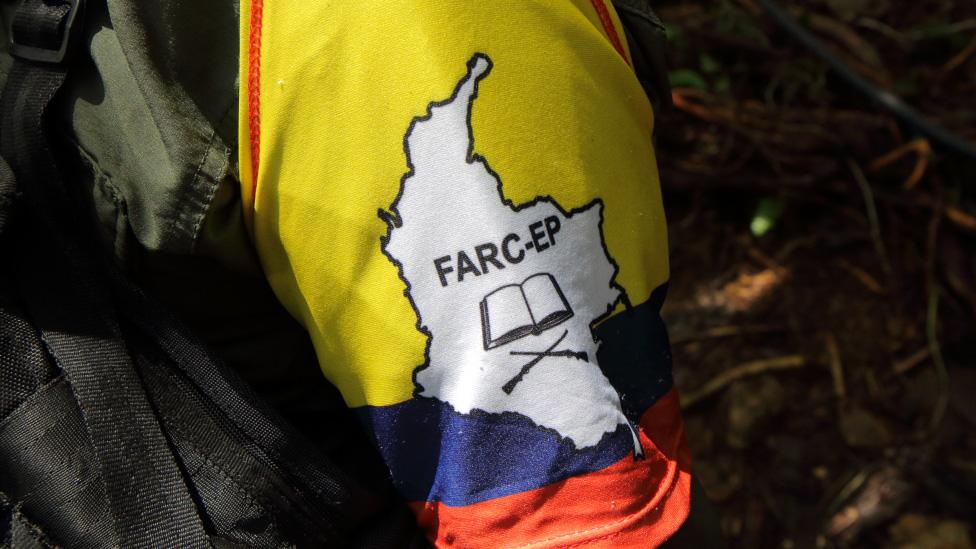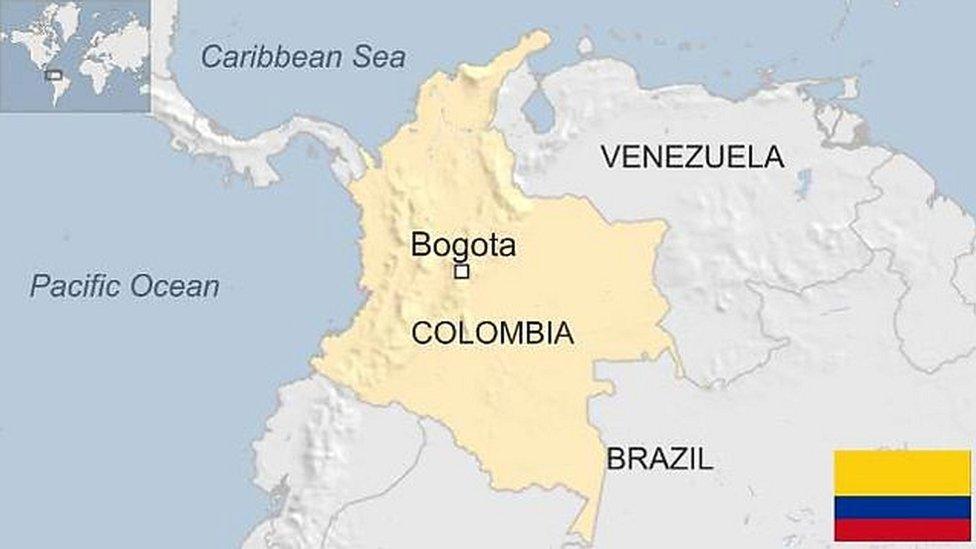Colombia urged to do more to protect ex-Farc rebels after killings
- Published

Some 160 ex-fighters and their relatives have been killed since the 2016 deal, the Farc says
The leader of Colombia's former Farc rebels has called on the government to stop the "systematic murder" of ex-fighters following two killings.
In an open letter to President Iván Duque, Rodrigo Londoño said the cases highlighted the lack of protection of Farc members by authorities.
One ex-fighter was shot dead while working as a journalist and the other was killed after meeting a UN team.
President Duque has condemned the killings and ordered an investigation.
The 2016 peace deal between the government and the Farc put an end to more than five decades of armed conflict, and resulted in about 7,000 ex-fighters laying down their weapons.
Since then, some 160 ex-fighters and their family members have been killed, the Farc said. Previously known as the Revolutionary Armed Forces of Colombia, the Farc is now a political party, the Revolutionary Alternative Common Force.
Anderson Pérez Osorio, who worked as a journalist for a Farc-linked outlet, was shot dead on Monday in the south-western department of Cauca while Daniel Esterilla was killed as he left a meeting with the UN mission in the south-western department of Nariño, the Farc said.
Rodrigo Londoño - better known by his nom de guerre, "Timochenko" - said the cases were the latest in "the long list of... state violations" of the peace deal.
He called on political groups and the international community to demand "immediate and effective measures from President Duque... to put a definitive end to this bloodshed".
On Twitter, Mr Duque - a vocal critic of the peace deal - said officials would hold an emergency meeting to discuss and reinforce the protection measures, and vowed that those responsible for crimes would be "severely punished".
In Colombia an organisation is using football to try and promote peace in violent neighbourhoods.
In January, the United Nations said most of the murders of former Farc rebels had been committed by illegal armed groups and drug gangs fighting over former Farc territories.
Since the peace deal, Colombia's weak state apparatus has been unable to take control of these isolated regions, according to the UN. Instead, illegal armed groups have taken over and the security forces and president are increasingly coming under fire for not stemming the violence.
- Published1 January 2019

- Published24 November 2016

- Published14 February 2023
